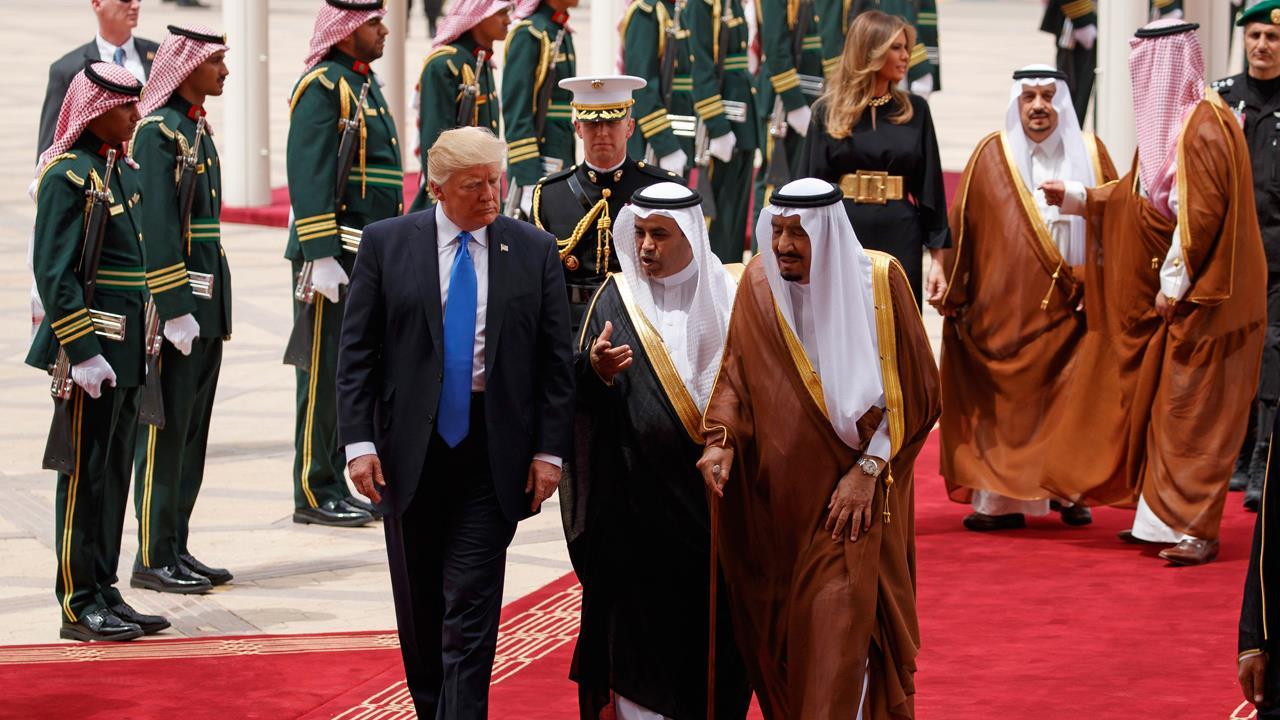Saudi Aramco restructures non-oil assets ahead of IPO: Sources
DHAHRAN, Saudi Arabia/DUBAI (Reuters) - Saudi Aramco has created a subsidiary to house its multibillion-dollar pension fund and could spin off its aviation division, sources said, as it restructures some assets not related to oil and gas ahead of its planned initial public offering (IPO).
The move is designed to streamline Aramco's operations and could make it easier to value since its business risk would be clearer and that may help it achieve a higher price for its shares, financial and industry sources told Reuters.
"This makes Aramco a leaner company," said one source familiar with Aramco's plans.
The state-owned oil giant declined to comment on the pension fund move or plans for its aviation division.
The listing of Aramco, which is likely to happen next year, is the centerpiece of the government's ambitious Vision 2030 plan to diversify the kingdom's economy beyond oil.
Crown Prince Mohammed has said he expects the IPO to value Aramco at a minimum of $2 trillion, meaning a sale of 5 percent could raise $100 billion to help fund Vision 2030 projects. Analysts have valued Aramco at $1 trillion to $1.5 trillion.
Saudi Arabia has often tasked Aramco with carrying out government projects that have social goals and are too big or daunting for the private sector, such as building industrial cities, stadiums and cultural centers.
The world's largest oil exporter also has its own schools, housing, airline fleet and hospitals that are used by its roughly 55,000 employees as well as their families.
But potential investors in what is expected to the biggest IPO in history may not want exposure to such a complicated array of assets that would not be as profitable as Aramco's core oil business, financial sources said.
Aramco created a new subsidiary for its in-house multibillion-dollar retirement fund management unit about six months ago, sources familiar with the matter said.
The fund, now called Wisayah, is being run by a small team of financial professionals in Dhahran, where Aramco's headquarters is based, one of the sources said.
"This is best practice. It sets up nice clean lines so the money can't be used for other business activities," a second source familiar with the move told Reuters.
PLANES AND HOSPITALS
Besides the pension fund, two sources said Aramco could spin off some non-oil units such as its aviation division, by either forming a joint venture to manage it or bringing in an outside company to operate the fleet.
Aramco Aviation operates about 10 jets such as Boeing 737s and Embraer 170s, as well as helicopters that transfer employees and visitors to oil and refining plants across Saudi Arabia.
Aramco formed a joint venture with U.S. construction firm Jacobs Engineering Group last year to take on the project management of government infrastructure and other projects not related to oil, as part of its IPO preparations.
Another joint venture that falls outside the traditional scope of an oil company is Aramco's Johns Hopkins Aramco Healthcare Company JV created in 2013 with the U.S. hospital to provide medical care for Aramco employees and their families.
One source said the joint venture may open up to the public and not just serve the company's employees.
Aramco has often defended taking on projects outside its core oil and gas business as part of its corporate social responsibility for the community.
But Aramco's involvement in ventures such as the Al-Jawhara football stadium in Jeddah or managing floodwater drainage there has prompted criticism internally that its manpower is not being used effectively.
"Aramco doesn't only look at its oil and gas related interests but it is also a channel and mechanism for the nation. This drains Aramco's resources both in terms of money and its core people," said one industry source working in Saudi Arabia.
"If I am an investor I need to be very clear what I am investing into, it cannot be fuzzy."
(Writing by Rania El Gamal; editing by David Clarke)




















